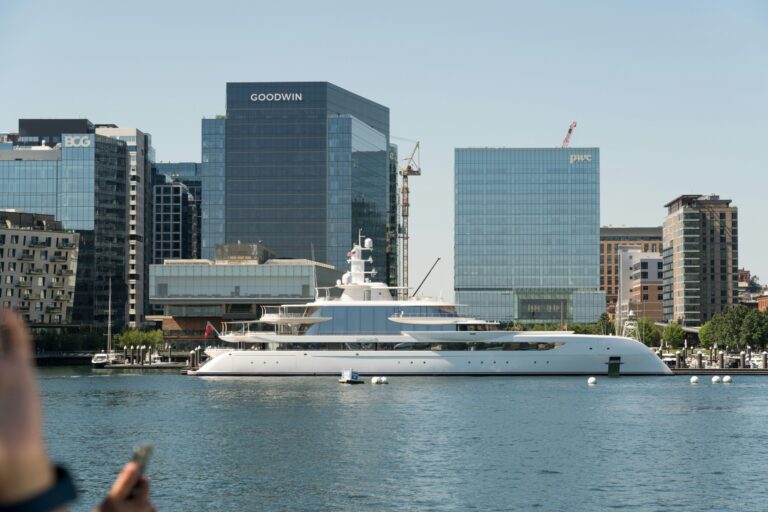Luxury Market Sees Continued Growth
Boston’s luxury real estate market is on a strong upward trajectory in 2025, with high-end properties in neighborhoods like Back Bay, Beacon Hill, and Seaport experiencing significant demand. According to the Boston Realty Advisors, the sale of luxury properties in the city rose by 10% in January compared to the previous year, underscoring the ongoing strength of the market. The demand for luxury homes is being driven by an influx of affluent buyers, particularly from high-cost states like New York and California, where the cost of living has pushed many high-net-worth individuals to look for alternatives.
Factors Driving Boston’s Luxury Market
The city’s reputation as a hub for education, healthcare, and technology has made it particularly attractive to wealthy individuals seeking access to world-class institutions, top-tier medical facilities, and innovation-driven industries. As Boston’s economy continues to thrive, the growing wealth in the region, combined with the limited inventory of luxury homes, has created a highly competitive market. Many sellers are now able to achieve record-breaking prices, especially in prime locations offering spectacular views of the harbor or proximity to cultural landmarks like the Boston Common and the Museum of Fine Arts.
This demand for luxury properties is particularly noticeable in iconic neighborhoods such as Back Bay, Beacon Hill, and Seaport, where buyers are not only investing in homes but also in the lifestyle that comes with living in these historic, prestigious areas. The combination of exclusivity, proximity to Boston’s vibrant cultural scene, and the growing tech industry makes these neighborhoods particularly appealing.
Challenges of Affordability
While Boston’s luxury market continues to flourish, the high cost of entry into the market is creating growing challenges for middle-class buyers. As prices for luxury properties climb, more individuals and families are finding it increasingly difficult to afford homes in Boston. The affordability gap is widening, and many buyers are being pushed out of the market, leading to concerns over income inequality and housing access for working and middle-class families.
The high demand for luxury homes has made the city more attractive to wealthy investors, but it has also intensified competition for available inventory. As many high-end homes sell at a premium, this has the effect of further inflating prices in the surrounding neighborhoods, potentially making it even more challenging for the broader population to find affordable housing.
The Lasting Effects of the Luxury Boom
The ongoing surge in Boston’s luxury real estate market is expected to have lasting effects on the city’s housing landscape. While the market’s growth is undoubtedly a boon for the economy, it also raises important questions about affordability and the potential for increased income inequality in the region. High-end real estate development and investment may bring more wealth into the city, but it could also exacerbate disparities in housing access.
On a positive note, the influx of luxury buyers and the increased value of high-end properties are driving investment in the local economy, generating job growth in sectors such as construction, real estate services, and hospitality. Additionally, the continued demand for luxury real estate is contributing to the revitalization of neighborhoods, with more developments that enhance the city’s appeal as a global business and cultural center.
Looking Ahead: Will Demand Sustain?
The luxury real estate market in Boston is expected to remain strong as long as broader economic conditions remain favorable. As long as demand from high-net-worth individuals continues, especially from out-of-state buyers, the market will likely maintain its upward trajectory. However, as the cost of housing continues to rise, Boston will need to address the increasing challenges of affordability for its middle-class and low-income residents.
City planners are likely to focus on finding ways to increase the supply of affordable housing, especially as the luxury market’s boom continues. Balancing the needs of high-end buyers with the growing demand for affordable housing will be a critical issue for Boston’s real estate market in the coming years.
In conclusion, Boston’s luxury real estate market is thriving, with no immediate signs of slowing down. However, the city faces significant challenges in maintaining affordability and ensuring that all residents benefit from the economic growth driven by the real estate boom. As the market continues to evolve, its lasting effects will be felt across all segments of the population, highlighting the need for careful urban planning to maintain balance and inclusivity in Boston’s housing market.
